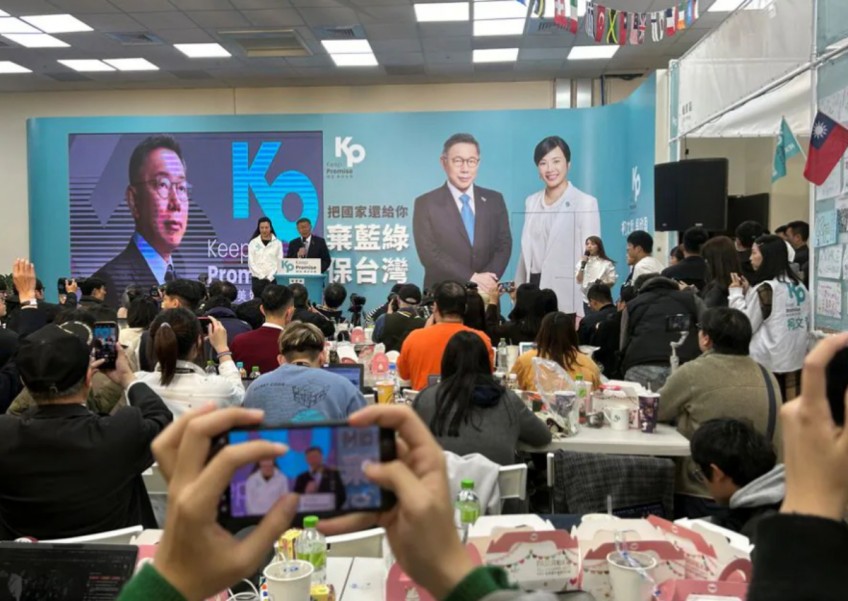Chinese embassies condemn foreign officials over Taiwan post-election remarks


BEIJING — China's foreign ministry and its embassies around the world condemned foreign governments that congratulated Taiwan's Democratic Progressive Party (DPP) and its president-elect Lai Ching-te after an election on Saturday (Jan 13).
After the DPP's presidential candidate Lai won the vote, several ministers and politicians in countries that share warm, if in most cases unofficial, ties with the self-ruled island sent congratulatory messages to Lai and the DPP.
This drew swift responses from Chinese embassies, highlighting Beijing's sensitivity to other countries appearing to give legitimacy to a candidate and political party it views as "secessionist forces" hoping to turn Taiwan — which it claims as its own — into an independent sovereign nation.
The Chinese foreign ministry on Sunday described a statement from US Secretary of State Anthony Blinken, which congratulated Lai and said Washington looked forward to further its unofficial relationship with Taiwan, as "sending a seriously incorrect signal" to "Taiwan independence separatist forces".
"China has always firmly opposed any form of official exchanges between the United States and Taiwan, and resolutely opposes the United States interfering in Taiwan affairs in any form and under any pretext," the foreign ministry said in a statement published on its website.
The Chinese embassy on Saturday condemned what it called the "incorrect actions" of British Foreign Minister David Cameron after he said, in a statement congratulating Lai and his party, that the elections were a "testament to Taiwan's vibrant democracy."
"We urge the United Kingdom to acknowledge the position that Taiwan is a province of China, cautiously handle Taiwan-related matters in accordance with the one-China principle, stop any remarks that interfere in China's internal affairs," the embassy said in a statement published on its official WeChat account.
The Chinese embassy in Japan went as far as lodging solemn representations, a form of official diplomatic protest, after Japanese foreign minister Yoko Kamikawa congratulated Lai on his victory.
Kamikawa called the self-ruled island "an extremely crucial partner and an important friend" but in the same statement she also stated that the working relationship with Taipei was on a "non-governmental basis".
"We solemnly urge the Japanese side to... refrain from disrupting peace and stability across the Taiwan Strait and China-Japan relations," The Chinese embassy said.
Beijing, which has never renounced the use of force to bring Taiwan under its control, fears that Lai could declare the establishment of a Republic of Taiwan, which Lai has said he will not do.
[[nid:666907]]
Chinese foreign minister Wang Yi, speaking at a press conference in Cairo after a meeting with Egyptian President Abdel Fattah al-Sisi, gave a warning on Sunday to anyone in the international community that violates the one-China principle, which states Taiwan is an inalienable part of China's territory.
"(Such a violation) will inevitably be hit with the joint resistance of all Chinese people and the international community," Wang said.
The Chinese embassy in France said that a statement from the French foreign ministry on Sunday was a "provocation" against the Chinese government because it congratulated a separatist politician and political party in Lai and the DPP.
This was despite the fact that France, unlike several other countries, did not name Lai or his party in its statement, congratulating instead "all voters and candidates" who participated in the election.
"The 'Taiwan independence' candidate winning, and some so-called 'congratulations' cannot change fundamental framework and development trend of cross-Strait relations," the embassy said.
But the Chinese embassy also took issue with the statement's praise of Taiwanese democracy, accusing the DPP of corruption and repressing its political opponents.
"With such a stained and unsavoury track record, were it any western country, would it be championed as 'democracy'?"
Even on the eve of the election, Chinese diplomats were already warning their host countries of the consequences of supporting Lai and the DPP.
Xiao Qian, Chinese ambassador to Australia, published an article in The Australian on Friday where he warned his host country of unspecified dangers if it were to support "Taiwan independence forces" like the DPP.
"If Australia is tied to the chariot of Taiwan separatist forces, the Australian people would be pushed over the edge of an abyss," he wrote.
ALSO READ: Taiwan voters rebuff China and give ruling party third presidential term